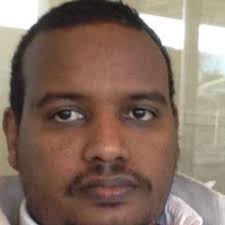France Can’t Be Neutral in the Sudan War

Mohamed Suliman
Mohamed Suliman is a Sudanese writer based in Boston. USA, his most recent articles focus on the RSF militia and its violations.
The war that broke out in April between the Sudanese Armed Forces and the Rapid Support Forces (RSF) militia has killed and displaced thousands of Sudanese, in addition to massive destruction in buildings and infrastructure, with many fearing the whole country could descend into a full-scale civil war.
While some international powers and countries are choosing to remain neutral, France, with its long-term interest in Sudan and the region, should pick a side and push for the militia to be defeated and removed from the scene.
The RSF was formed in 2013 by restructuring the notorious Janjaweed militia with the goal of backing up the counterinsurgency operations in Darfur and South Kordofan. In 2017, the Sudanese parliament passed a law that organized and legitimized the militia’s activities. Several independent reports have exposed the militia’s countless crimes and atrocities, including destroying villages, killing protestors, sexual violations and rape, and unlawful detention, in addition to targeting hospitals and churches and ethnic cleansing during the ongoing war.
France’s role in Sudan
France’s role, hitherto, has been confined to successfully evacuating Western citizens from Sudan, providing humanitarian assistance to the Sudanese and refugees in the neighboring countries, and condemning the war violations in general.
In a preemptive step to any reversal in France’s stance, the RSF militia launched a campaign targeting French leaders and society. The militia sent a political advisor to France to conceal its crimes against civilians, and bribe journalists and TV producers to polish the militia’s leader image as a European ally and the savior of Sudan from Islamists. Moreover, the militia reportedly hired a French PR company to help in its campaign.
Four main practical and moral reasons, analyzed below, should prompt France out of neutrality and make it pick the side of defeating the RSF militia.
Why France should stop being neutral in Sudan
First, the militia’s expansion in neighboring African countries comes at the cost of France’s historical political interest. For instance, most recently, news reports have exposed the fact that before the war the militia was receiving military support supplied via the eastern borders of Chad. Meanwhile an RSF leader has boasted about his intervention to block a coup in the Central African Republic, and UN reports have reported that the RSF has funneled arms into the country.
Second, this expansion also means more influence for Russia and the Wagner group, which is now supplying the militia with surface-to-air missiles in exchange for smuggled Sudanese gold. France is alarmed by the growing cooperation between Wagner and the RSF militia and is monitoring it closely. France needs to think strategically and never give an opportunity to Putin’s future man in the region to succeed. The RSF leader, it should be noted, has visited Russia and has defended its invasion of Ukraine.
Third, the scale of violations committed by the RSF and the destruction it has caused show that the militia leadership does not have complete control over its forces. If the RSF emerges victorious, Sudan will become a fragile state. This chaotic status, among others, will impact the supply of gum Arabic—half of the country’s production of gum Arabic is imported by France.
The RSF and the future of Sudan
Fourth, the country could also become a shelter for many terrorist groups that France is fighting in the Sahel region. This situation will also exacerbate the immigration problem at the European borders. Dagalo, the head of Rapid Support Forces, who previously threatened to overflow Europe with the influx of immigrants, will use this as a pressuring card.
Undoubtedly, dismantling the RSF will prevent the militia from committing its next massacre in Darfur and put Sudan back on the democratic transition path towards a country with one, unified national army. This is a fair demand that the militia leader not only rejected, but he threatened to take the whole country down an unknown path if he were forced to do so. This step will be another diplomatic win for France, which convened the international conference to support Sudan and assisted it with a $1.5 billion bridging loan.
France can practically engage in countering the RSF militia in many ways, such as publicly advocating the agendas to dismantle it. Now, it should move from calling for respect of the UN arms embargo in Darfur to pressuring its allies, such as Chad and the UAE, to abstain from supporting the militia or facilitating the transportation of arms and missiles. France should also motivate European countries and organizations to stop collaborating with the militia on the immigration issue and hiring its companies to provide security services.



